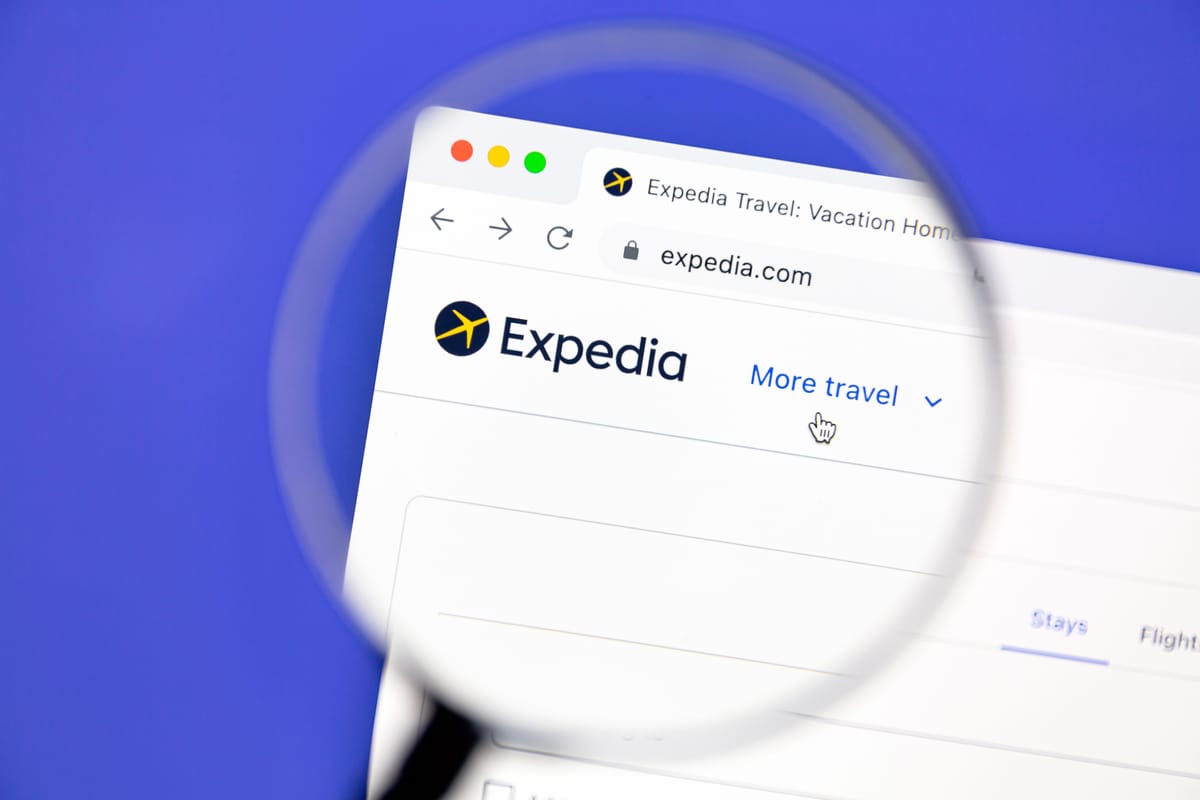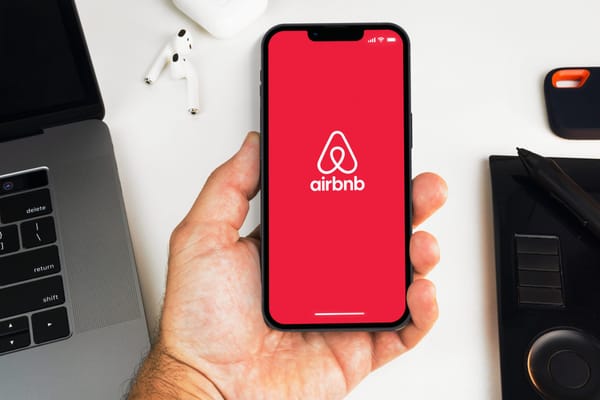Is Expedia Good for Vacation Rental Hosts?

If you’re a vacation rental host or property manager, you’ve probably heard of Expedia—one of the biggest names in online travel. Originally known for booking flights and hotels, Expedia has expanded to include vacation rentals, putting properties like yours in front of millions of travelers worldwide. But is it actually worth listing your rental on Expedia?
That’s the big question. Does Expedia help you get more bookings and boost revenue, or does it come with too many fees and limitations? How does it compare to other platforms like Airbnb or Booking.com? And most importantly—does it actually bring in the right kind of guests for your property?
In this article, we’ll break down the pros and cons of listing your vacation rental on Expedia, how it stacks up against other online travel agencies (OTAs), and what you need to consider before signing up.
What is Expedia and How Does it Work?
While it’s best known for flights and hotels, Expedia has been making big moves into the vacation rental space, giving property owners like you a chance to reach a massive audience of travelers looking for unique stays.
And we’re not just talking about a small expansion—the vacation rental market has exploded. In fact, vacation rentals have doubled their share of the lodging industry since 2014, making up 14% of the market by 2022 and expected to surpass $150 billion by 2024. With more travelers choosing rentals over traditional hotels, platforms like Expedia are racing to meet demand.
How Does Expedia Work for Vacation Rental Hosts?
Getting started with Expedia is pretty straightforward:
- Sign Up & List Your Property – You create a profile and upload your listing through Expedia Partner Central or its vacation rental brand, Vrbo.
- Set Your Pricing & Policies – You control your rates, availability, and house rules.
- Manage Bookings & Guests – Expedia handles payments and bookings while you communicate with guests through the platform.
Sounds simple enough, right? But the real question is: does Expedia actually bring in the right guests?
Why Are More Travelers Choosing Vacation Rentals?
Expedia’s expansion into vacation rentals isn’t random—it’s responding to major shifts in traveler preferences. Here’s what’s happening:
- People are traveling more for "Go-ccasions" – Nearly 23% of travelers are booking trips just to celebrate little moments with loved ones, leading to more group stays.
- Longer Stays, Bigger Groups – Vrbo travelers tend to stay three times longer, bring twice as many guests, and spend five times more than the average hotel guest.
- More Travelers Want Unique, Home-Like Stays – The demand for vacation rentals isn’t just a trend—it’s a shift in how people travel, and Expedia is working to keep up.
Is Expedia Right for Your Vacation Rental?
Expedia gives you access to a huge audience of travelers, especially those booking flights and vacation packages. But whether it’s a good fit for your rental depends on your goals. Do you want more bookings and international exposure, or are you focused on keeping more control and avoiding commission fees?
In the next sections, we’ll break down the pros and cons of listing on Expedia, how it compares to Airbnb, Booking.com, and direct bookings, and whether it’s the right move for your business.

Pros of Listing Vacation Rentals on Expedia
If you’re considering listing your vacation rental on Expedia, there are some big perks that could make it worth your while. From tapping into a huge global audience to leveraging smart pricing tools, here’s why many hosts choose to work with Expedia.
1. Massive Audience Reach = More Potential Bookings
Expedia isn’t just another travel site—it’s one of the largest OTAs in the world. Millions of travelers use Expedia to book their hotels, flights, car rentals, and vacation packages every day.
That means your vacation rental could be seen by a much bigger audience than you might reach through direct bookings alone.
✅ Example: Let’s say a traveler is planning a trip to San Francisco. They start by searching for flights and hotels—but they also see vacation rentals listed right alongside hotel options. If your property looks appealing, they might book with you instead of a hotel—even if they weren’t originally looking for a rental.
More eyeballs on your listing = higher chances of getting booked.
2. Bundle Bookings & Increased Exposure
One of Expedia’s standout features is its vacation packages, which let travelers book their flight, hotel, and rental car all in one go. The best part? Vacation rentals can be included in these Expedia packages, meaning your property might be selected by travelers who weren’t even considering a vacation rental at first.
✅ Example: A family planning a trip to the coast is looking for a flight and hotel package. As they browse, they see your beachfront rental included in a package deal. They realize it offers more space, a kitchen, and better value than a hotel, so they book your rental instead.
By being part of Expedia’s bundle booking system, your property gets more exposure and a higher chance of being booked—especially by travelers looking for a seamless, hassle-free experience.
3. Expedia Rewards Program = More Repeat Guests
Expedia has a loyalty program called Expedia Rewards, where frequent travelers earn points on bookings, including vacation rentals. This means travelers who love earning rewards might prefer booking through Expedia just to rack up points for future trips.
✅ Why does this matter for hosts? More repeat travelers mean a higher chance of bookings, especially from people who trust Expedia and use it consistently. If your rental is part of the Expedia ecosystem, you can attract guests who are already committed to booking through the platform.
4. Smart Pricing Tools to Stay Competitive
One of the biggest challenges for vacation rental hosts is setting the right price—too high, and you lose bookings; too low, and you’re leaving money on the table.
Expedia offers dynamic pricing tools that help you:
- Adjust prices based on demand trends
- See what similar properties are charging
- Optimize your rates to stay competitive
✅ Example: If there’s a surge in bookings for a big event in your area, Expedia can suggest increasing your rates to match demand. On the flip side, if bookings are slow during an off-season, it may recommend a slight price drop to attract budget-conscious travelers.
This kind of pricing flexibility can help you maximize revenue while keeping your rental competitively priced.
5. User-Friendly Listing Management
Managing your vacation rental shouldn’t be a headache, and Expedia makes it easy with Expedia Partner Central—a dashboard where you can:
- Manage bookings & availability
- Update your listing details
- Track your property’s performance
- Respond to guest inquiries
✅ Example: Let’s say a traveler asks a last-minute question before booking. You can quickly respond through Expedia’s messaging system, increasing the likelihood of a confirmed booking.
The analytics and reporting tools are also super handy, giving you insights into:
- Who’s booking your rental (business travelers, families, vacationers, etc.)
- Your property’s performance compared to competitors
- Opportunities to improve visibility and bookings
Expedia’s platform makes it easy to stay on top of your rental business, whether you manage one property or multiple listings.

Cons of Listing Vacation Rentals on Expedia
While Expedia can be a powerful tool for getting more bookings, it’s not all smooth sailing. Like any OTA, there are some trade-offs to consider. Let’s break down the biggest downsides of listing your vacation rental on Expedia.
1. Commission Fees – You Pay for the Exposure
Expedia’s massive reach comes at a cost—literally. Unlike direct bookings, where you keep 100% of your earnings, Expedia charges a commission fee on every reservation. These fees vary, but they typically fall between 15% and 20% of the booking total.
✅ Example: If you rent out your property for $200 per night and get a 5-night booking, that’s $1,000 in revenue. But with a 20% commission fee, Expedia takes $200, leaving you with $800 before taxes and other expenses.
For some hosts, this fee is worth it because Expedia brings in more bookings. But if you’re already getting plenty of direct reservations, these commissions can add up quickly and eat into your profits.
💡 Pro Tip: Many hosts use Expedia alongside a direct booking strategy—keeping a presence on Expedia for visibility but encouraging repeat guests to book directly next time to avoid commission fees.
2. Strict Cancellation and Refund Policies
Expedia’s cancellation policies can sometimes feel like they favor guests more than hosts. In many cases, guests are allowed to cancel without penalties, which can leave hosts scrambling to fill last-minute gaps in their calendars.
✅ Example: Let’s say a guest books your vacation rental months in advance, blocking off those dates. Then, two weeks before check-in, they cancel. Depending on your listing’s cancellation policy, you might get little or no compensation, leaving you with an empty property and lost revenue.
Unlike direct bookings—where you can set your own clear refund policies—Expedia’s system can sometimes override host preferences, especially if a guest disputes a charge.
💡 Pro Tip: Always double-check which cancellation policies you can enforce and set your minimum stay requirements wisely to avoid last-minute cancellations disrupting your income.
3. Guest Expectations vs. Reality
Expedia was built for hotels, and while they’ve expanded into vacation rentals, their platform doesn’t always represent the unique aspects of private rentals. This can sometimes lead to misaligned guest expectations.
✅ Example: A guest books your charming cottage in the mountains, expecting hotel-like amenities because Expedia grouped it alongside hotels in their search results. When they arrive and realize there’s no 24/7 front desk, daily housekeeping, or room service, they might leave a negative review, even though your listing was accurate.
Another issue? Expedia’s search filters aren’t always perfect for vacation rentals. If your property has quirky or unique features, it might not be properly categorized, leading to confused guests who expected something different.
💡 Pro Tip: Be crystal clear in your description. Spell out what is and isn’t included to avoid surprises. Use high-quality photos that accurately show your space, so guests know exactly what they’re booking.
4. Customer Service Challenges – Slow Response Times & Disputes
Expedia’s customer service has received mixed reviews, with some hosts experiencing long wait times, unhelpful responses, or difficulties resolving issues.
✅ Example: A guest requests a refund for a stay they completed, claiming the property “wasn’t as expected.” Even though your listing clearly described the space, Expedia may side with the guest, issuing a refund without consulting you first.
Many hosts also struggle to get quick support when dealing with fraudulent bookings, chargebacks, or listing errors. Compared to Airbnb’s host-focused support, Expedia’s system can feel less responsive to host concerns.
💡 Pro Tip: Keep detailed documentation of guest communications, policies, and listing descriptions in case you ever need to dispute a refund or chargeback.
5. Limited Control Over Direct Guest Relationships
When a guest books through Expedia, they are Expedia’s customer—not yours. This makes it harder to build direct relationships with guests and encourage repeat bookings.
✅ Example: You host a business traveler who loves your property and says they’ll be back in town soon. Normally, you’d give them your direct booking website and offer a discount for booking directly next time. But since they booked through Expedia, you don’t have direct access to their email or contact information beyond Expedia’s messaging system.
This lack of direct communication makes it harder to build guest loyalty, which is one of the biggest advantages of direct bookings.
💡 Pro Tip: Some hosts use subtle branding within their rentals—such as custom welcome guides or business cards—to encourage repeat guests to find and book directly next time.

Expedia vs. Other Online Travel Agencies
There’s no doubt that Expedia is a big player in the OTA space. But it’s not the only one around—and when it comes to vacation rentals, there are plenty of competitors worth considering, especially when you compare prices.
Let’s break down how Expedia stacks up against some of the other top platforms.
Expedia vs. Booking.com
Both Expedia and Booking.com are giants in the travel industry, offering hotels, flight deals, car rentals, and vacation packages. They also both cater to vacation rental hosts, but there are some key differences in how they operate.
Pricing and Fees
- Expedia: Charges 15-20% commission on bookings, which can add up fast.
- Booking.com: Also charges around 15% commission, but sometimes more if you opt into visibility-boosting programs.
Audience and Reach
- Expedia: Tends to attract a mix of business travelers, vacationers, and package deal seekers.
- Booking.com: Attracts more budget-conscious travelers and longer stays, especially in Europe.
Booking Process
Expedia’s user interface is often praised for being straightforward and intuitive, while Booking.com’s can feel a bit cluttered or overwhelming—especially for users not used to navigating the site.
💡 Pro Tip: Check your listing on both platforms and see how it appears to potential guests. Sometimes a better user experience can lead to more bookings, even if the commission rates are similar.
Expedia vs. Airbnb
Now we’re talking about two completely different vibes. While Expedia feels more like a traditional travel agency, Airbnb leans into the local, homey experience.
Listing Experience
- Expedia: Listings are hotel-like and often lack the personal touch that some vacation rentals offer.
- Airbnb: Encourages hosts to tell their story, creating a more personal connection with guests.
Fee Structure
- Expedia: Charges a commission fee per booking, but there’s no fee for guests.
- Airbnb: Typically charges both the host and the guest, with guest fees ranging from 5-20% and host fees around 3%.
Guest Expectations
- Expedia travelers are looking for convenience and professional-grade stays, often as part of bundle bookings.
- Airbnb guests expect unique experiences and homey touches.
Expedia vs. Kayak
Kayak is another popular travel booking site, but it works a bit differently from Expedia. Rather than being a direct booking platform, Kayak aggregates deals from various OTAs, including Expedia, Priceline, and others.
Why It Matters for Hosts
- Listing on Expedia means your property may automatically appear on Kayak, giving you a broader reach without extra effort.
- However, you don’t have direct control over how your listing appears on Kayak since it pulls data from other sources.
Audience
Kayak users are typically budget-conscious and comparison-focused, so if you list through Expedia, make sure your pricing stays competitive—otherwise, your rental might look too pricey when displayed alongside cheaper options.
💡 Pro Tip: Keep an eye on how your property shows up on comparison sites like Kayak to make sure it’s being represented accurately and competitively.
Expedia vs. Direct Booking Sites
Of course, listing on OTAs isn’t your only option. Many hosts are moving toward direct bookings to avoid commission fees and build stronger relationships with guests.
Direct Booking Pros
- No commission fees—you keep 100% of your earnings.
- Complete control over your cancellation policies, pricing, and guest interactions.
- Better guest loyalty since you can build a direct relationship.
Direct Booking Cons
- Requires more marketing effort to get traffic.
- You’re responsible for handling payments and customer support.
- It can be harder to compete with OTAs that dominate search results.
💡 Pro Tip: Use OTAs like Expedia to attract first-time guests, then encourage repeat bookings directly through incentives like discounts for booking on your website.

Final Thoughts
With bundle booking options, a user-friendly interface, and access to Expedia Rewards members, it’s definitely worth considering—especially if you’re looking to fill up your calendar and reach international travelers.
However, it’s essential to weigh the cons against the pros. Commission fees can cut into your profits, and dealing with strict cancellation policies or customer support issues can be a headache. Plus, the challenge of building direct guest relationships means you might miss out on repeat business.
To make the most of Expedia while minimizing hassle, consider automating your vacation rental business with iGMS. It’s an all-in-one property management solution designed to help you manage listings, automate guest communication, and keep your operations running smoothly—whether you’re on Expedia, Airbnb, or any other OTA. Focus more on providing a great guest experience while the software handles the rest.






